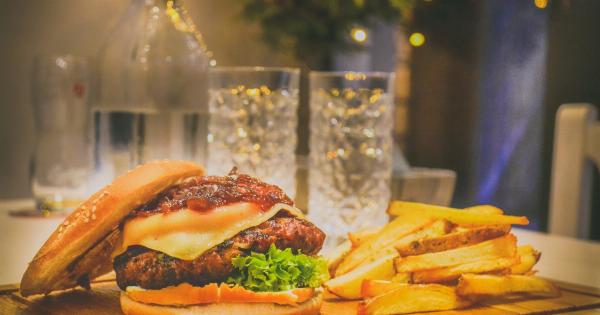When it comes to weight loss, fasting has gained significant popularity in recent years. Fasting involves restricting the intake of food for a certain period, and many people turn to it to shed those extra pounds.
However, one common concern that arises with fasting is the concept of fasting calories. Are calories consumed during fasting? Are they necessary? In this ultimate guide, we will explore all about fasting calories and how they affect your weight loss journey.
What are Fasting Calories?
In simple terms, fasting calories refer to the number of calories you consume while fasting. Despite the name, fasting calories do not necessarily mean consuming a specific amount of calories during your fasting window.
The term is more about being mindful of what you consume during your fasting periods and understanding how it may affect your overall caloric intake.
Caloric Intake and Fasting
During an extended fasting period, such as intermittent fasting, your body enters a state of ketosis. Ketosis is a metabolic state where your body relies on stored fat as its primary source of energy rather than glucose from carbohydrates.
In this state, your body burns calories more efficiently, making it easier to create a calorie deficit and lose weight.
However, it’s important to note that fasting alone does not guarantee weight loss.
While fasting helps create a calorie deficit and initiates fat burning, it’s still essential to pay attention to your overall caloric intake, including what you consume during your eating window.
The Role of Fasting Calories in Weight Loss
During fasting, consuming calories can break your fast. This is important to consider, especially during intermittent fasting. Intermittent fasting typically involves fasting for a specific period, followed by an eating window.
The aim is to allow your body to enter a fasted state, promoting various health benefits, including weight loss.
When you consume calories during your fasting window, it can disrupt the fasting process. Calories intake triggers insulin release, which inhibits the body’s ability to burn stored fat effectively.
However, the impact of fasting calories on weight loss is highly individual, and some people may be more tolerant to consuming small amounts of calories while still experiencing weight loss benefits.
Understanding Zero-Calorie Foods
An essential aspect of fasting calories is the concept of zero-calorie foods. Zero-calorie foods are those that have minimal or negligible caloric content.
Consuming these foods during your fasting window is generally acceptable as they do not significantly affect your overall calorie intake or disrupt the fasting process.
Examples of zero-calorie foods include cucumber, lettuce, celery, green tea, and black coffee. These foods can help curb hunger pangs and provide certain nutrients without significantly impacting your caloric intake during fasting.
What About Liquid Calories?
When it comes to fasting calories, liquid calories can be a hidden adversary. Many beverages, such as soda, fruit juice, and even some flavored water, contain hidden calories. These liquid calories can easily add up and disrupt your fasting efforts.
It’s crucial to be mindful of what you consume during your fasting window, even if it’s in liquid form.
Strategies to Minimize Fasting Calories
To make the most out of your fasting journey, consider these strategies to minimize fasting calories:.
- Stick to water, black coffee, or unsweetened tea: These beverages are low in calories and won’t disrupt your fasting efforts.
- Avoid adding cream, sugar, or artificial sweeteners: These additions contain calories or can trigger insulin responses, affecting your fasting state.
- Opt for whole foods during your eating window: Focus on consuming nutrient-dense whole foods instead of processed or high-calorie options.
- Practice mindful eating: Pay attention to your hunger and fullness cues to prevent overeating during your eating window.
Listen to Your Body
Ultimately, the impact of fasting calories on weight loss depends on various individual factors.
It’s crucial to listen to your body and assess how different foods or beverages during your fasting window affect your overall well-being and weight loss progress. Experimentation and self-awareness are key.
Conclusion
While fasting calories can play a role in your weight loss journey, it’s important to remember that fasting alone is not a magic solution.
Creating a calorie deficit is still essential, and mindful eating should be prioritized during your eating window. By understanding the concept of fasting calories and making informed choices, you can optimize your fasting efforts and work towards achieving your weight loss goals.




























